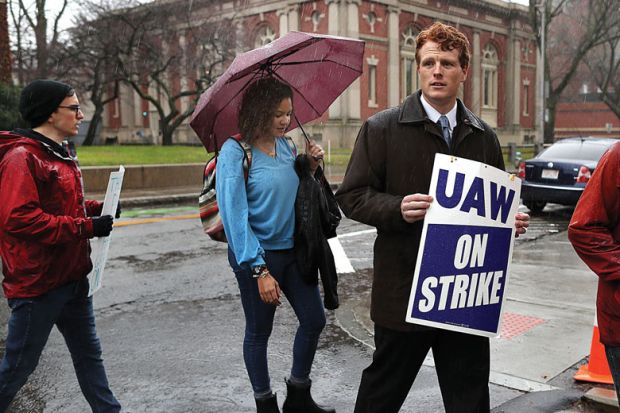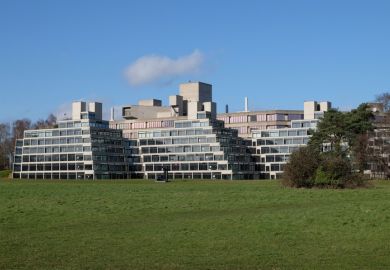A new wave of student labour unionisation is sweeping US college campuses, with demands for better pay and conditions encouraged by political awakenings, pandemic-related fears, labour shortages and a more welcoming White House.
The action in recent weeks includes votes by graduate student unions at both Harvard and Columbia universities to authorise strikes. Among their key issues are better pay, protection against discrimination and harassment, and rights to robust grievance procedures.
Other graduate student unions, including those at the University of Michigan at Ann Arbor and Oregon State University, have used the threat of labour action to win conditions that better protect their members during the pandemic.
Several other institutions, including the 10-campus University of California system and Howard University, are seeing new moves by student workers and instructors to form and use their own recognised unions.
And in two fundamentally new directions, unions now appear imminent for student athletes in the $19 billion (£14 billion) collegiate sports industry, and for undergraduates who perform tasks that include leading campus tours.
Much of the activity follows the arrival of the Biden administration and its promised moves to make clear that student workers at US colleges and universities have the right to form unions and engage in collective bargaining.
That federal encouragement, said higher education labour expert William Herbert, has been compounded by the pandemic and the determination of workers to ensure that their health is not risked by the eagerness of institutions to resume in-person instruction.
“We are seeing a ferment of strikes and strike threats in the United States by workers off and on campuses,” said Mr Herbert, executive director of the National Center for the Study of Collective Bargaining in Higher Education and the Professions at Hunter College.
The labour activism is partly cyclical, tied to the appointed membership of the National Labor Relations Board, the federal agency that enforces US labour law. The NLRB allowed graduate students to form labour unions during the Obama administration, reversed that under Trump, and reversed it again under Biden.
That alone was expected to produce a post-Trump surge in student efforts to form unions, said Mr Herbert, a lecturer in public policy at Hunter, part of City University of New York.
But other conditions also appear to be having an effect, given that many low-wage industries in the US – such as restaurants – are struggling to find workers.
The University of Texas at Austin independently decided to increase the pay of its dining hall workers this summer to help address staffing shortages. Princeton and Brown universities and Dartmouth College also have struggled to staff their dining facilities.
More enduring change is likely to come from political awakenings, among college students more generally, and among student athletes in particular, about the value of their work. Several US states this year set aside years of fierce resistance from colleges to let student athletes profit from their own product endorsements.
That shift, however, may be only the beginning. A former University of Minnesota history lecturer and labour activist, Jason Stahl, has taken steps to form a college football players’ association. And in recent days, the NLRB under Mr Biden announced that it recognises the right of college athletes to be legally treated as employees.
In a statement, the NLRB’s general counsel, Jennifer Abruzzo, warned colleges against “misclassifying such employees as mere ‘student-athletes’ and leading them to believe that they are not entitled” to the protections of federal labour law.
Register to continue
Why register?
- Registration is free and only takes a moment
- Once registered, you can read 3 articles a month
- Sign up for our newsletter
Subscribe
Or subscribe for unlimited access to:
- Unlimited access to news, views, insights & reviews
- Digital editions
- Digital access to THE’s university and college rankings analysis
Already registered or a current subscriber? Login








